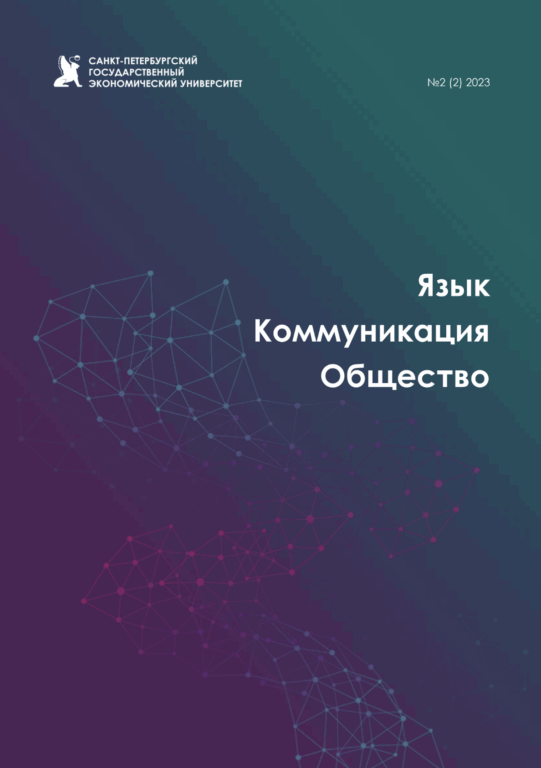(Gunkova D. E.)
(Davydova V. A.)
(Palekhova O. V.)
(Kaftandjiev C. N.)
(Semenova L. M.)
(Shilina M. G.)
(Kurakinа O. D.)

The Second Issue of the Electronic Scientific Journal "Language. Communication. Society" continues the discussion of pressing issues at the intersection of linguistics, media communications, and philosophy, offering readers new perspectives on contemporary socio-humanitarian research.
Linguistics and intercultural communication
This section explores sound symbolism in artificial languages, axiological frameworks in political discourse, and techniques for imposing false information in media texts. Phonotypes in Invented Languages: The study demonstrates how sound-symbolic patterns of natural languages are reproduced in constructed languages like Na'vi and Klingon, confirming the universality of phonotypes as minimal meaningful units of sound-iconic systems. Axiology of Political Discourse: An analysis of American radio commentators' broadcasts reveals dominant values such as patriotism, security, and freedom, which are employed to manipulate public opinion. Manipulative Techniques in Media: Using German-language texts as examples, the research shows how "us vs. them" strategies, labeling, and the use of euphemisms distort information and shape predetermined audience perceptions.
Media communications and journalism
This section focuses on the role of context in modern media and the synergy of marketing communications. Context and Intertextuality: The study examines how context integrates various semiotic systems to enhance the effectiveness of advertising messages. Campaigns for Perrier and Carlsberg illustrate how the environment becomes part of communication. Synergy in Marketing: The analysis highlights how the combined action of advertising, PR, and other tools creates effects surpassing the sum of individual components, with special attention given to transmedia narratives.
Philosophy
The philosophical articles in this issue address problems of communication, power, and manipulation. Communicative Rationality: The discussion centers on how media discourse influences the formation of public opinion and ideological frameworks. Ethics of Information: The section raises questions about media responsibility for disseminating false data and its societal consequences.
The Unifying Theme of the Issue is the interplay of language, media, and philosophy in the digital age. The journal offers an interdisciplinary perspective on contemporary challenges, emphasizing the importance of critically examining communicative practices. This issue fosters further dialogue among researchers and strengthens academic collaboration.